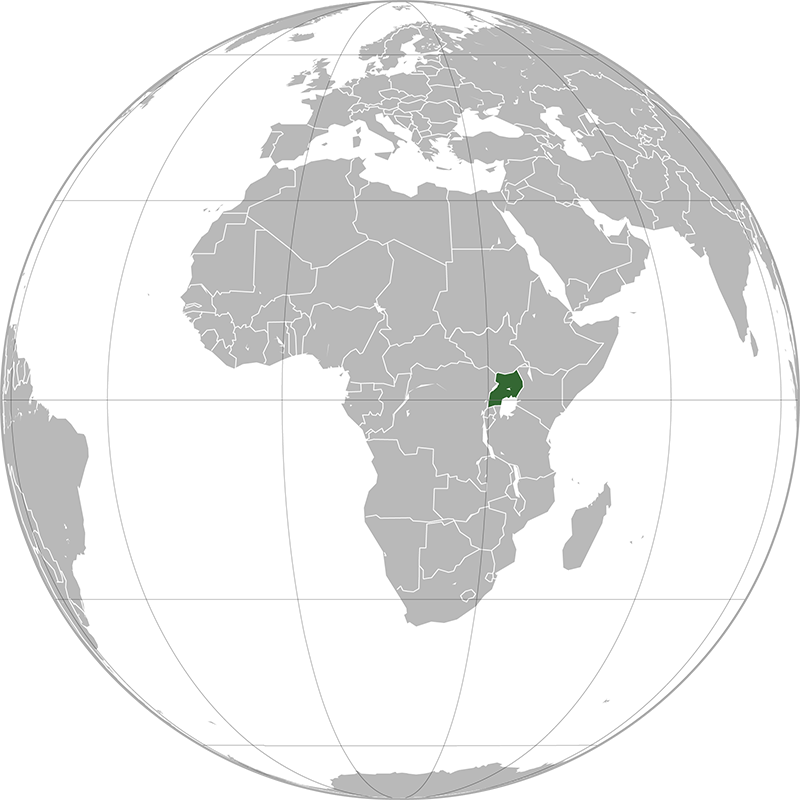
- Population:
- 50,015,000
- Religion:
- Christianity
Uganda was home to various kingdoms, including Buganda, before becoming a British protectorate in the late 19th century. It gained independence in 1962 but faced instability under leaders such as Idi Amin and Milton Obote. Since the 1980s, Uganda has made progress in economic growth and development, though challenges such as political tensions and regional conflicts remain.
Uganda, officially the Republic of Uganda, is a landlocked country in East Africa. It is bordered by Kenya to the east, South Sudan to the north, the Democratic Republic of the Congo to the west, Rwanda to the southwest, and Tanzania to the south. The southern part of the country includes a substantial portion of Lake Victoria, shared with Kenya and Tanzania. Covering an area of approximately 241,038 square kilometers, Uganda has a population of about 47 million people as of 2023. The capital and largest city is Kampala. The official languages are English and Swahili, with numerous indigenous languages also widely spoken. Uganda operates as a presidential republic. The economy is diverse, with key sectors including agriculture, manufacturing, and services. Uganda is known for its rich biodiversity, including mountain gorillas and numerous national parks, as well as its diverse cultures and traditions. The country is a member of international organizations such as the United Nations, the African Union, and the East African Community.






